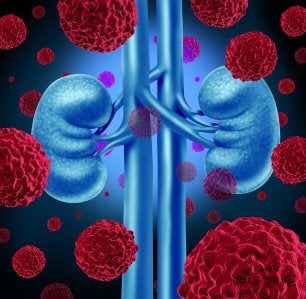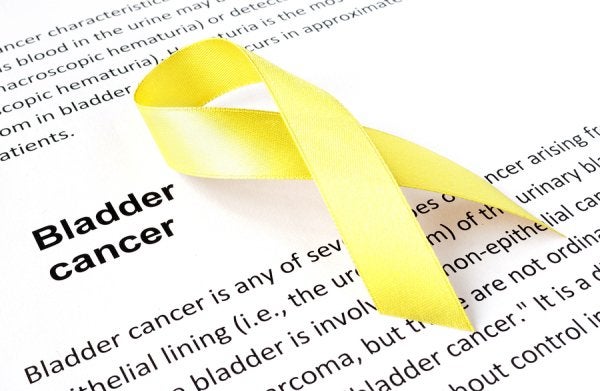-
Understanding Penile Rehabilitation After Cancer Treatment
Typically, patients find that when they undergo cancer treatment, they must cope with lasting side effects. This is particularly true of men with prostate cancer who undergo a prostatectomy. A prostatectomy is a surgery to remove part or all of the prostate gland. Although this type of cancer treatment can be effective for extending a man’s longevity, it carries a high risk of erectile dysfunction (ED). Fortunately, there are treatment options available for men with ED. A urologist can design a penile rehabilitation program for men who have undergone prostatectomies.
Low Testosterone Treatment
The urologist may recommend doing some lab tests to determine if the patient has low testosterone levels. If so, treating low T can be helpful in overcoming erectile dysfunction. There are many options for treating low testosterone, including topical gels, implantable pellets, and self-administered injections. These are known as testosterone replacement therapy (TRT) products. Oral Medications
Oral Medications
For many men, oral medications are effective in preserving sexual health after a prostatectomy . Some oral medications include sildenafil, vardenafil, avanafil, and tadalafil. These medications work by boosting the effects of nitric oxide. This is a chemical that relaxes muscles to improve blood circulation, which enables men to get an erection when sexually aroused. Men should be careful to follow the dosage instructions carefully, since they can vary from drug to drug. Before taking any new medications, it’s advisable to consult the physician about the possible side effects.Intra-Urethral Suppositories
Intra-urethral suppositories are another option to treat ED after a prostatectomy. This involves placing the medication directly into the opening that is located at the tip of the penis. The medication, alprostadil, triggers the expansion of the blood vessels. The increased blood flow helps men get and maintain an erection.At the Men’s Health Clinic at Urology Associates, P.C ., men will find a comprehensive range of healthcare services for sexual health in Nashville. Our urology team can design a penile rehabilitation program to help you cope with erectile dysfunction after prostate cancer. Contact our state-of-the-art clinic at (888) 329-7700 and let us know how we can help you.
-
A Closer Look at Cryoablation Therapy
Cryoablation therapy, also known as cryosurgery, is a minimally invasive treatment that may be recommended for patients with prostate cancer. Additionally, some patients with kidney cancer may be good candidates for this type of cancer treatment. When you watch this video, you’ll hear Dr. Robert Barnett explain how cryoablation is used for cancer treatment.
Dr. Barnett of Urology Associates, P.C. explains how cryoprobes, which are special needles, are inserted directly into the cancerous tissue. Sometimes, this is accomplished with CT guidance. Then, the cancerous tissue is frozen in a controlled manner. This procedure may sometimes be performed with only a local anesthetic.
You can schedule a consultation with a urologist at Urology Associates, P.C. by calling (888) 329-7700. In addition to cancer treatment in Nashville, we provide a full range of healthcare services for individuals with incontinence, erectile dysfunction, and related conditions.
-
Answering Common Questions About the MonaLisa Touch Procedure

Women who are experiencing sexual health issues while going through menopause previously had few treatment options. Hormone replacement therapy or estrogen creams aren’t suitable for every woman and healthcare providers typically don’t recommend hormone treatment on a long-term basis, given the health risks. Now, there’s a new option for women with vaginal atrophy or vaginal dryness. The MonaLisa Touch procedure is a minimally invasive, painless treatment that can help women resolve their symptoms.
Who Can Benefit from this Procedure?
Any woman who is diagnosed with vaginal atrophy may benefit from the MonaLisa Touch procedure. Vaginal atrophy is commonly associated with menopause. However, it may also occur in women with hormonal changes due to breastfeeding or breast cancer. This condition is characterized by the inflammation of the vaginal walls , along with thinning and dryness. Many women with vaginal atrophy suffer from painful intercourse and painful urination.How Does It Work?
The MonaLisa Touch procedure involves the insertion of a laser tip into the vagina. It will feel similar to the annual pelvic exam and Pap test; however, it only takes about five minutes. The device delivers pulses of laser energy to the vagina to stimulate the production of collagen.How Many Treatments Will I Need?
Women who are good candidates for the MonaLisa Touch procedure typically undergo three sessions, which are spaced six weeks apart. Following this initial treatment, women can schedule a once per year treatment session with their urologist to ensure that they stay symptom-free.How Soon Will I Notice Results?
Many women who undergo this innovative treatment report feeling immediate relief of the symptoms of vaginal dryness. Even if relief of symptoms isn’t immediate, women almost always experience results by the second treatment session.If you have any other questions about the MonaLisa Touch procedure, contact our WISH clinic , Women’s Institute for Sexual Health a division of Urology Associates, P.C., at (615)250-9265. Our urology team offers compassionate and confidential diagnostic and therapeutic services for sexual health in Nashville. We also provide treatment options for patients with erectile dysfunction, kidney stones, and bladder cancer.
-
Addyi Approved by the FDA!
-
Join Vikki Pedigo of Urology Associates for a Webinar!
Urology Associates is happy to announce that our very own Vikki Pedigo will be participating in a webinar with
 Pearl Point Cancer Support.
Pearl Point Cancer Support. Women’s reproductive cancers and treatment may cause side effects including fatigue, sexual dysfunction, and digestive issues. Join Vikki F. Pedigo, MSN, WHNP-BC, Nurse Practitioner at the Women’s Institute for Sexual Health in Nashville, TN to explore strategies and techniques to help you manage the side effects of reproductive cancers. Margaret Martin RD, MS, LDN, CDE Nutrition Educator at PearlPoint Cancer Support will also provide tips and suggestions for controlling digestive issues, combating fatigue, and maintaining a healthier weight.
The webinar will take place on Wednesday, August 19 th from 11:00am-12:00pm Central time anyone who wants to listen in can register by clicking the link below.
-
Exploring Kidney Cancer Risk Factors
 Kidney cancer accounts for approximately 3% of all adult cancers in the United States. This number may seem insignificant on its own, but when you consider that it translates to approximately 32,000 new cancer cases annually the number doesn’t seem so small. Kidney cancer claims about 12,000 lives each year, most of whom are men between the ages of 50 and 70. Although we don’t yet know what causes kidney cancer, we do recognize that certain risk factors are linked to an elevated risk for developing the disease. If you can positively identify any of these kidney cancer risk factors, schedule a screening with a urologist in Nashville .
Kidney cancer accounts for approximately 3% of all adult cancers in the United States. This number may seem insignificant on its own, but when you consider that it translates to approximately 32,000 new cancer cases annually the number doesn’t seem so small. Kidney cancer claims about 12,000 lives each year, most of whom are men between the ages of 50 and 70. Although we don’t yet know what causes kidney cancer, we do recognize that certain risk factors are linked to an elevated risk for developing the disease. If you can positively identify any of these kidney cancer risk factors, schedule a screening with a urologist in Nashville . Unhealthy Lifestyle Habits
Certain lifestyle habits that might be considered unhealthy have shown a causal link with kidney cancer. Smoking, for example, increases the risk of getting kidney cancer. People who are overweight and have a poor diet are also at a higher risk of getting kidney cancer . You might also be at risk if you are regularly exposed to certain chemicals that increase the risk for kidney cancer, including cadmium, herbicides, and certain organic solvents.Inherited Conditions
Kidney cancer can sometimes be caused by one of six rare inherited conditions. Although people who have these conditions account for only a small portion of total kidney cancer patients overall, people who have these conditions have a much higher risk for developing kidney cancer compared to others. These inherited conditions are:- Birt-Hogg-Dube syndrome
- Family renal cancer
- Hereditary papillary renal cell carcinoma
- Hereditary leiomyoma-renal cell carcinoma
- Hereditary renal oncocytoma
- Von Hippel-Lindau disease
Certain Medications
Phenacetin, a once popular pain-reliever, has been linked to kidney cancer but has not been prescribed in the United States for over 20 years. Today there are certain drugs used to treat high blood pressure that have been linked to an elevated risk of kidney cancer, though it’s not clear whether the link is related to the medication or the high blood pressure. Ask your doctor if any of the medication you are on has been shown to elevate one’s risk for kidney cancer.If you are worried that you might be at risk for kidney cancer, visit Urology Associates P.C. for a cancer screening. We are the leader in urological care in Nashville and throughout Tennessee. If you are diagnosed with kidney cancer, we provide the most advanced and aggressive kidney cancer treatment to help you recover. Call us toll-free at (888) 329-7700 to find a urologist in your area.
-
Basic Facts About Erectile Dysfunction
 Although erectile dysfunction is a very serious condition, the perception of ED is made worse thanks to myths and misinformation floating around on the internet. The first thing to know about ED is that while it is common, it is not a normal part of aging and almost every case of ED is treatable. It is also important to know that erectile dysfunction is not caused solely by low libido. There are numerous risk factors that contribute to ED, many of which are manageable. These risk factors include:
Although erectile dysfunction is a very serious condition, the perception of ED is made worse thanks to myths and misinformation floating around on the internet. The first thing to know about ED is that while it is common, it is not a normal part of aging and almost every case of ED is treatable. It is also important to know that erectile dysfunction is not caused solely by low libido. There are numerous risk factors that contribute to ED, many of which are manageable. These risk factors include: - Tobacco use
- Drug and alcohol use
- Being overweight
- Psychological conditions (stress, anxiety, depression, etc.)
- Certain medical treatments
- Certain medical conditions
- Injuries to the nerves or arteries that control erections
The ED specialists here at Urology Associates P.C. in Tennessee will tailor treatment plans to address the specific issues that are interfering with your ability to achieve or maintain an erection. Our team of experienced urologists appreciate your need for compassion and discretion while you seek treatment for ED. For additional information, call us at (888) 329-7700.
-
How is Bladder Cancer Diagnosed and Treated?
Bladder cancer accounts for about 90% of all cancers of the urinary tract, and transitional cell carcinoma makes up about 90% of all bladder cancers. According to the American Cancer Society, about 75,000 new cases of bladder cancer have been diagnosed so far in 2015. The good news is that the long-term prognosis for people who have bladder cancer is better today than ever before. This brief article touches on bladder cancer diagnosis and treatment, and explains how to set up a bladder cancer screening with a urologist in Nashville.

Bladder Cancer Symptoms
Before a doctor can examine you for bladder cancer, you must first exhibit or recognize one of the symptoms of bladder cancer in order to seek a diagnosis. The most common symptoms of bladder cancer include blood or blood clots in the urine, chronic pain during urination, urinating small amounts frequently, and a frequent occurrence of urinary tract infections. Symptoms of more advanced cancer include pain in the lower back around the kidneys and a growth in the pelvis area near the bladder.
Diagnosing Bladder Cancer
The first thing your doctor will do is perform a physical exam and ask questions regarding your lifestyle, exposure to cancer-causing chemicals, and family history of cancer. A urologist will collect a urine sample to check for the presence of blood, infection, and other abnormal cells that indicate bladder cancer. If the urologist has any cause for concern, he or she will perform a cystoscopy to look at your bladder using a thin, lighted tube and take biopsies of abnormal areas to test for cancer cells or tumor markers. If cancer cells are detected, various tests will be performed to classify the stage and grade of the bladder cancer.
Treating Bladder Cancer
Treatment for bladder cancer depends on the stage and grade of the cancer, as well as your age, overall health, and quality of life. Treatment options for bladder cancer include surgery, chemotherapy, radiation therapy, and immunotherapy. Bladder cancer prognosis is highest for people who get treated early, so don’t hesitate to get screened if you notice any of the symptoms of bladder cancer.
You can count on the experienced urologist at Urology Associates P.C. to answer all of your questions regarding bladder cancer diagnosis and treatment . Contact us online or call us at (888) 329-7700 to schedule a bladder cancer screening in Nashville or to learn about your bladder cancer treatment options in Tennessee if you have already been diagnosed with the disease.
-
A Closer Look at Kidney Stone Disease
Kidney stone disease is a common problem treated by urologists in Tennessee, affecting about one in eight people. However, treating kidney stones is much more difficult than preventing kidney stones in the first place. This video from Urology Associates P.C. discusses the disease, as well as providing tips for preventing kidney stones.
If you believe you are suffering from kidney stones, contact the experts at Urology Associates P.C. We are Nashville’s leading urological care provider, with more than 75 years of experience and more than 30 urologists who treat patients at our various locations throughout Tennessee. Contact us online or call us at (888) 329-7700 to schedule a kidney stone screening with one of our experienced urologists. We also invite you to check out our website to learn more about the conditions we treat and the specialty services we provide, including the only free-standing urology surgery center in Middle Tennessee .
-
Women’s Sexual Health Course in Orlando
Brooke Faught, MSN, WHNP-BC, IF, is the clinical director of the Women’s Institute for Sexual Health , WISH, at Urology Associates P.C. located in Nashville, Tennessee. Brooke Faught, a board member of the National Associates of Nurse Practitioners in Women’s Health (NPWH) and fellow of the International Society for the Study of Women’s Sexual Health (ISSWSH), helped organize and was a keynote speaker at this years’ Women’s Sexual Health Course in Orlando. The course was co-sponsored by NPWH and ISSWSH, and was dedicated to furthering the understandings of female sexual problems.
Brooke Faught lobbied alongside her colleague, Vikki Pedigo, MSN, WHNP-BC, on Capitol Hill and testified in front of the FDA in June 2015 on behalf of gender equality which aided in the landmark decision to approve the first ever medication, Flibanserin, to treat Hypoactive Sexual Desire Disorder for women.
The various afflictions for female patients is becoming more prominent in the medical field as more women speak out about their ailments. New diagnostic and management strategies are becoming available to medical professionals and the Women’s Sexual Health Course allows them to gain the necessary knowledge, skills, and professionalism required for excellence in the practice of sexual medicine.
The Women’s Sexual Health Course reached attendance capacity months in advance of the meeting date, and had 50 members on the waiting list. The NPWH and ISSWSH foundations are looking to expand the WSHC courses to twice annually to better accommodate all of those interested in learning more about helping women fight against sexual disorders.

Recent Posts
categories
- Uncategorized
- Bladder Cancer
- Women's Sexual Health
- MonaLisa Touch
- Urology
- Urologist
- Erectile Dysfunction
- Kidney Cancer
- Incontinence
- Prostate
- MonaLisa Touch Laser Treatment
- Kidney Stones
- Urinary Tract Infections
- Event
- Sexual Dysfunction
- Testicular Cancer
- Prostate Cancer
- Urology Surgery Center
- urinary incontinence
- vaginismus
- noncoital pain disorder
- Hypoactive Sexual Desire Disorder
- Infographic
- provenge
- Xofigo
- robotic surgery
- hormone replacement
- diabetes
- renal cell carcinoma
- pelvic pain
- hematuria
- sexual health
- chronic testicular pain
- premature ejaculation
- Men's Health Clinic
- Dr. Melvin Seard
- Interstitial Cystitis
- vasectomy
- overactive bladder
- vaginal atrophy
- nocturia
- bladder infections
- urethral strictures
- Acute Epididymitis
- low sex drive
- circumcision
- pelvic floor dysfunction
- Peyronie's Disease
- prostatitis
- female sexual dysfunction
- varicocele
- difficult urination
- low libido
- PSA levels
- male fertility
- penile prosthesis
- prostatic intraepithelial neoplasia
- male infertility
- estrogen levels
- nurse navigator
- stress urinary incontinence
- vaginal yeast infection
- elevated psa
- painful sex
- adult circumcision
- epididymitis
- OAB
- kidney infection
- penile cancer
- pelvic organ prolapse
- Vasectomy Reversal
- bone health
- cystectomies
- clinical trials
- bloody urine
- Advanced Therapeutic Center
- WISH MedSpa
- neurogenic bladder
- WISH Team
- prostate biopsies
- BPH
- fecal incontinence
- lithotripsy
- osteoporosis
- kidney cysts
